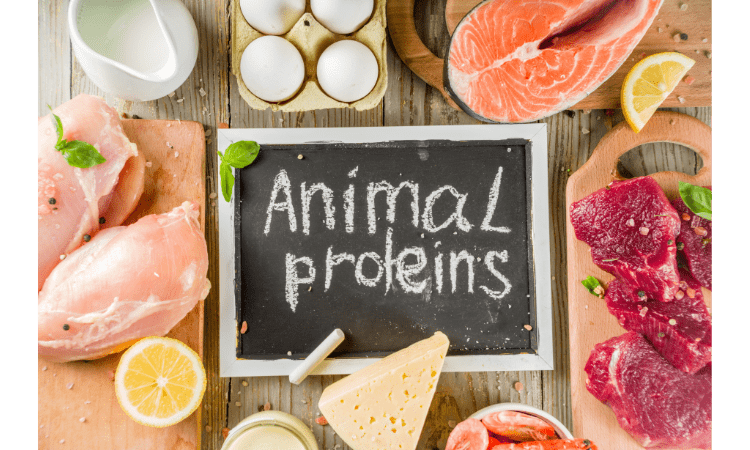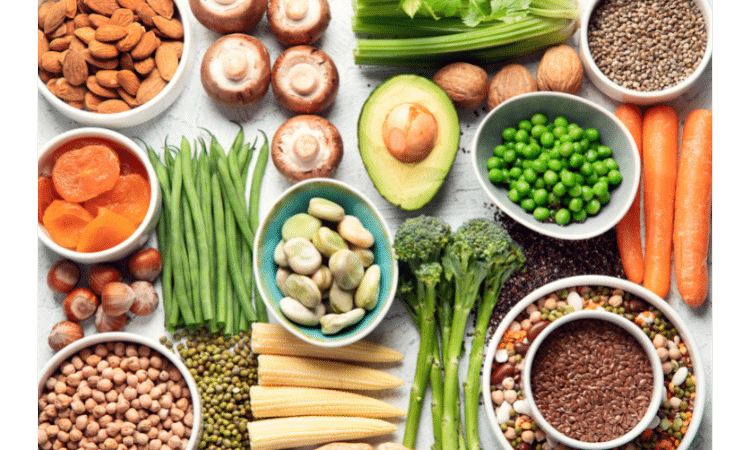
Protein is an essential macronutrient that plays a big role in your energy level and your ability to build muscle. It’s also important for weight loss, as it helps you stay full for longer. If you’re struggling to get enough protein into your diet, there are two main options: animal protein powder and plant protein powder. Both can be used to supplement your diet with extra protein and make sure that you’re getting all the nutrients you need. Animal proteins are the most common type of protein found in nature. These proteins are derived from animals such as beef, pork, chicken, and fish. Plant proteins on the other hand are made up of soybeans, rice, and wheat. Some people may choose to use these powders as part of a vegan diet or to supplement their own diet with additional sources of protein. Both types of powders are popular among athletes looking to improve their workouts by boosting their protein intake. In this article, we’ll compare animal protein powder vs plant protein powder to help you decide which type is right for your needs.
About Animal Protein Powder

Animal protein powders are made of the muscles, organs, and bones of animals. These powders are high in amino acids like leucine, isoleucine, and valine. Animal-based proteins also contain all essential amino acids, which means they’re considered a complete protein source. This makes them a great option for those who want to build muscle. It is usually made from meat that has been cooked or dried, then ground into a powder, which makes it easy to mix into recipes or other foods. It can also be mixed with water or milk for an instant meal.
Protein powders are used as an alternative to whole foods because they are easy to digest and have fewer calories than whole foods. The most common uses for animal protein powders include adding them to shakes and smoothies, baking with them in cookies or cakes, or adding them to soups and sauces.
Source of Animal Protein Powder

Animal protein powder is made from a variety of sources, but the most common are whey, casein, and egg protein. Whey is a water-soluble byproduct of cheese production. Casein is a milk protein that’s extracted from the curds of milk during cheese production. Egg protein is extracted from eggs when they’re separated from their shells.
Because animal products like meat and dairy are so high in fat, they’re often processed before being used as an ingredient in animal protein powders. This helps keep the final product stable and fresh as it travels from farm to factory to table.
Benefits of Animal Protein Powder
Animal protein powder has a number of benefits to offer, including:
Digestion: Animal protein can be easier to digest than plant protein since it generally contains less fiber and is more easily broken down by the body. This makes it a good choice for those with digestive issues or other sensitivities to plant proteins.
Immune system: Animal protein powder can help boost your immune system, especially if you’re recovering from illness or injury and need to rebuild muscle mass quickly.
It may also help reduce inflammation in your body due to its high BV score as well as its ability to reduce cortisol levels in your body.
Animal protein powder can help you build muscle more quickly than plant-based proteins because it contains essential amino acids like leucine and glutamine. It has a higher concentration of branched-chain amino acids (BCAAs), which are essential for muscle growth.
It’s also a good source of iron and zinc, which are important for preventing anemia and boosting immunity during exercise.
Disadvantages of Animal Protein Powder
Animal protein powders can be expensive, especially if you want to buy the kind that’s been cold-processed (which is recommended).
Some people have allergies or intolerances to certain types of animal products, so they might need to avoid animal protein powders altogether. Animal protein powders tend to be very high in fat and cholesterol. The amount of fat and cholesterol that you consume has been shown to increase your risk of developing heart disease. In addition, animal protein powders are often high in sodium, which can lead to high blood pressure and other cardiovascular problems.
About Plant Protein Powder

Plant protein powder is an excellent alternative to animal protein powder, and is made from plants like peas, rice, and hemp. Plant protein powder is also great for those who are vegan or lactose intolerant.
It’s important to know that plant protein powders aren’t all created equal. Some plant proteins are more bioavailable than others—meaning your body can better absorb and use them. This is especially important when it comes to plant-based proteins because they’re not as easily digestible as animal proteins. It can be used as a meal replacement or simply added to smoothies or other foods to increase their protein content. Plant-based proteins are often easier on the digestive system than animal-based ones and can help you feel fuller longer. The process to make plant protein powder involves crushing the plants and extracting their protein content. The process can be done with a machine or manually. After it’s extracted, the resulting liquid is dried out and turned into powder form using a blender or grinder machine.
Also Read: 4 Plant Based Foods to Eat Every Week
Source of Plant Protein Powder

Plant protein powder is a great option for people who are looking for an alternative to animal-based powders, but it comes from many different sources. Some of the most common sources are soy, hemp, brown rice, and pea. The flavor and texture of each source can vary depending on how it’s processed, so it’s important to try out a few different kinds before committing to one type.
One common mistake people make when choosing plant protein powders is assuming that all plant-based powders are created equal. While they’re all good options (and some are even better than others), they’re not all created equal when it comes to nutritional value or taste. Some offer more complete nutrients than others do, which can be helpful if you’re trying to avoid certain food groups such as dairy or gluten. It is often used for those who abstain from eating meat for religious or ethical reasons. Plant protein powders are also commonly used by vegetarians and vegans who want to increase the amount of protein they consume each day.
Benefits of Plant Protein Powder
The benefits of plant-based protein powders include: They don’t contain any cholesterol or saturated fats
Plant-based protein powders can be more affordable than animal-based ones since they’re less expensive to produce and have no added hormones or antibiotics.
They’re easily digestible and can be added to any meal or snack without changing their flavor
They’re usually gluten-free and vegan friendly
It’s a good source of fiber and other nutrients
Plant-based protein powders have a higher bioavailability—they’re easier for your body to process and absorb than animal-based proteins, so you can get more nutrients from them with less waste!
Plant protein is easy to digest and can help lower blood sugar levels
It helps reduce inflammation and oxidative stress in the body
Plant protein supports weight management by helping you feel full longer and providing fewer calories than animal-based protein sources
Plant protein helps keep your skin looking young by reducing wrinkles and fine lines
It also has many other benefits, including lowering blood pressure and cholesterol, lowering triglycerides, improving bone health, and reducing the risk of heart disease.
Disadvantages of Plant Protein Powder
Here are some of the disadvantages of plant protein powder:
- Plant proteins don’t contain all of the amino acids you need for muscle growth and repair
- Plant proteins are often low in certain essential amino acids, like BCAAs and glutamine, which can lead to soreness from overtraining and muscle loss
- Plant proteins can be hard to digest, especially if they’re taken in large quantities at once
- Plant proteins are generally higher in carbs than animal proteins, which can lead to blood sugar spikes that make it difficult to lose weight or gain muscle
- Plant proteins also tend to be lower in fats than animal products, so if you need fat for energy or satiety (feeling full), then plant-based sources might not be right for you
Another disadvantage of plant-based powders is that many people have allergies or sensitivities to certain foods that may lead them to avoid using them altogether. For example, soy has been known to cause some people’s stomachs distress when consumed in large quantities. It’s not uncommon for people who experience allergic reactions or digestive issues after consuming a lot of soy products to avoid using soy protein powder entirely.
Conclusion
In conclusion, it is important to understand the differences between animal protein and plant protein powders. Plant proteins are more sustainable than animal proteins because they do not require as much land and water to produce. They also contain more essential amino acids than animal proteins. Animal proteins can be more easily digested by humans, but plant proteins may provide more benefits for health.
It is important to measure both the pros and cons of each type of protein powder before making a decision about what kind of source you want to use as your primary source of protein in your diet.











